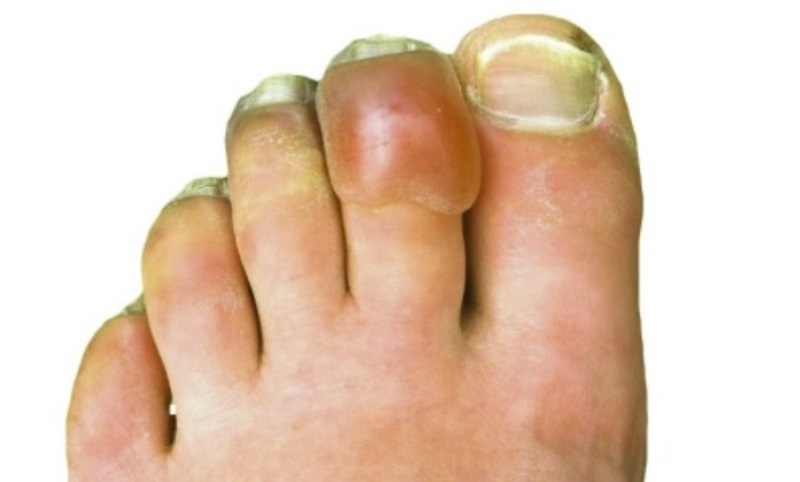There are things that we hear so often that they become gospel truths. Some of these are handed down from our ancestors and some are things we read or hear often on popular media. For example, how having 5-6 meals a day increases your metabolism and helps you lose weight, or why you must have low fat foods if you want to lose weight. Or even how hand sanitizers help you avoid infections and diseases.
But are these health myths true? Do you really need to eat 5-6 meals to lose weight? Do hand sanitizers really help, or instead, harm your health?
Suggested read: Importance of sleep for your health and skin
There may be some truths in some of these health myths, but not all of them are based on science and research. And in some cases, what is good for one person may not be the right option for someone else. Read on to know which ones are true and which ones should be relegated to the past.
Myth 1: Eat 5-6 meals a day to increase your metabolism and lose weight
Fact: False
Image source: Pixabay, under Creative Commons License
Metabolism is the total amount of energy your body uses during the day. Even if you are just lying down, your body needs calories to keep your heart beating, breathing, maintaining body temperature, and other such important involuntary functions. This is your basal metabolic rate, which is the number of calories your body burns at rest. On top of that, you burn calories for all your activities during the day, be it walking, sitting, cooking, exercising, etc., Your metabolism is a combination of your basal metabolic rate and the number of calories you use for all other daily activities.
For years, many weight loss experts have been saying that increasing the number of meals you have in a day will increase your metabolism, help your burn more calories and therefore help you lose weight. However, there is no truth in this popular belief. Research shows that you cannot increase your metabolism just by eating more often. What matters is the total number (and quality) of calories you have in a day and how much of these calories are used by your body during the day. If you ingest more calories than your body’s requirement, your body will store the excess calories as fat. Period.
So decide what works for you. If you are one of those people who likes to eat more often, go ahead and have meals more frequently. Just make sure that you are eating more of veggies and proteins and less of refined carbohydrates, while also keeping in mind that what matters is your overall calorie intake. On the other hand, if you feel better having 2-3 meals, that is fine too. As long as you eat the right amount and quality of calories.
Myth 2: Juicing is healthy
Fact: Depends
Image source: Google, copyright-free image under Creative Commons License
You hear of celebrities promoting juicing as a healthy lifestyle choice to lose weight. If you struggle to have adequate fruits and vegetables in your diet, then it is a good way to increase their intake. But there is a catch. Both fruits and vegetables contain vitamins, minerals, fibre, and other healthy phytonutrients and antioxidants, but juicing removes the all-important fibre.
As mentioned earlier, though fruits are good sources of vitamins, minerals, and antioxidants, most of them are also very rich in sugar. It is the fibre content of fruits that helps prevent sudden rise of blood sugar levels. And though people may believe otherwise, sugar is sugar, whether it comes from a cold drink or from fruits. Latest advances in scientific research shows that it is sugar (carbohydrate) which is the cause of most of the problems of obesity and its other attendant health problems like diabetes, heart disease, etc., Sugar also attacks the collagen bonds of your skin which accelerates the aging process, leading to lines and wrinkles. So, even if you are not juicing, it is better to have fruits in moderation.
However, there is a way to have your cake and eat it too. Instead of having a juice, have a smoothie. A smoothie is a thick beverage made from blended raw fruit and/or vegetables, with other ingredients such as water, ice, yogurt, milk, etc., The difference is that a smoothie contains all the fibres and you get your vitamins and minerals at the same time.
Myth 3: Using hand sanitizer is good
Fact: Depends
Image source: Google, copyright-free image under Creative Commons License
Hand sanitizers are convenient in situations where there is no clean water and soap available to cleanse your hands. Many claim to reduce up to 99.9% germs, so it can only be a good thing, right? Not really. Though they are useful in situations where there is no clean water and soap, their constant use may not be such a good idea. First of all, many of them contain harmful chemicals like triclosans, parabens, alcohol, artificial fragrances, etc., Triclosans kill both good and bad bacteria, increases the growth of breast cancer cells, and can kill brain cells too. Parabens are toxic substances that have been linked to many health problems like cancer, endocrine problems, skin irritation, and such. Alcohol in sanitizers is absorbed through the skin and through inhaling the vapors. Fragrances are chemicals which are often toxic.
But that is not all. Using sanitizers too often can lead to the development of antibiotic resistance and can actually weaken our immune systems. It has been observed that increasing use of hand sanitizers have led to the development of bacteria that are resistant to antibiotics. Also, since our immune systems are strengthened when they are exposed to germs, constant use of these products leads to weak immune systems incapable of fighting off the harmful bacteria. In fact, a study found that a child’s immunity is seriously affected by the use of hand sanitizers. More children were falling ill due to harmless and preventable diseases after the long term use of hand sanitizers. A very clean environment during the early stages of a child’s life lowers their immunity to such an extent that the body’s defence mechanism has to constantly fight off even less harmful bacteria and pathogens which leads to a weakened immune system. The problem continues as they grow older and as adults, they have weak immune systems and highly sensitive inflammatory response, which makes them vulnerable to various diseases.
Suggested read: Impressive benefits of blueberries for your skin, hair, and health
Myth 4: Cooking vegetables makes them lose nutrients
Fact: It’s complicated
Image source: Pixabay, under Creative Commons License
This health myth is not necessarily true because it depends on the kind of vegetable you are having. While cooking vegetables can potentially reduce the vitamin and mineral content, it also makes them easier to digest. Also, the nutrients in some vegetables like tomato (I am putting tomato in here, even though it is a fruit, not a vegetable), cruciferous vegetables like cauliflower and cabbage, green leafy vegetables like spinach, carrots, mushrooms, asparagus, etc., are better absorbed by the body when cooked rather than when eaten raw.
Lycopene, found in tomatoes, is an antioxidant that has many benefits like fighting heart disease and cancer and protecting your skin from the harmful effects of ultraviolet rays. Cooking tomatoes increases its bioavailability, and thus enhances their antioxidant capability. Cruciferous vegetables contain some compounds that can negatively affect your thyroid hormones and cooking reduces this effect to a great extent. Spinach contains oxalic acid which can block absorption of calcium and iron, and cooking it reduces oxalic acid content. Similarly, carrots, mushrooms, and asparagus are better had cooked than raw as cooking improves the availability of the nutrients they contain.
Myth 5: Vitamin C can keep you from catching cold
Fact: Not really, but maybe it helps to a certain extent
Image source: Google, copyright-free image under Creative Commons License
Many people believe that Vitamin C can cure or help prevent colds. Studies have also been done to see if Vitamin C can be a treatment for colds. The results are mostly conflicting. The overwhelming verdict seems to be that Vitamin C shows little or no benefit in preventing or curing colds. However, it is possible that taking Vitamin C before the onset of symptoms may shorten the duration of the cold or lessen the severity of symptoms. Also, in situations where people are at high risk for cold due to frequent exposure (for example, children in a play group), Vitamin C may provide some benefit.
Myth 6: Low fat food helps you lose weight
Fact: False
Image source: Google, copyright-free image under Creative Commons License
Based on flawed research, for a number of decades, people believed that the way to lose weight was to have low fat foods. So, now the market is flooded with low fat milk, low fat yogurt, low fat-everything. The fat that we used to consume has been replaced by carbohydrates and various seed oils. But has it helped? Nope.
Since this advice has been embraced all over the world, obesity rates and heart disease have increased worldwide, and researchers are now questioning if replacement of fats by other nutrients is the cause of increased incidence of heart diseases.
Suggested read: Amazing benefits of cherries for your hair, skin, and health
When it comes to weight loss, a low carbohydrate diet seems to work better especially in the short term and studies comparing the effects of low carbohydrate diet vs a low fat diet found that a low carbohydrate diet has a better outcome in appetite reduction, weight loss, improvement of Body Mass Index (BMI), abdominal obesity, and fasting blood glucose levels.
So, what can you learn from this article about health myths? That some myths are myths, while others have some basis in facts. Next time you hear a health myth, try to understand if it is based on sound science or is just an old wives’ tale before running out to implement it in your life.
Here’s to happy and healthy living!
Featured image source: Shutterstock



















